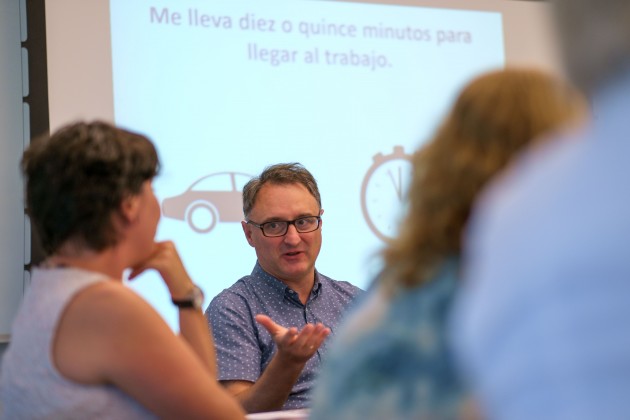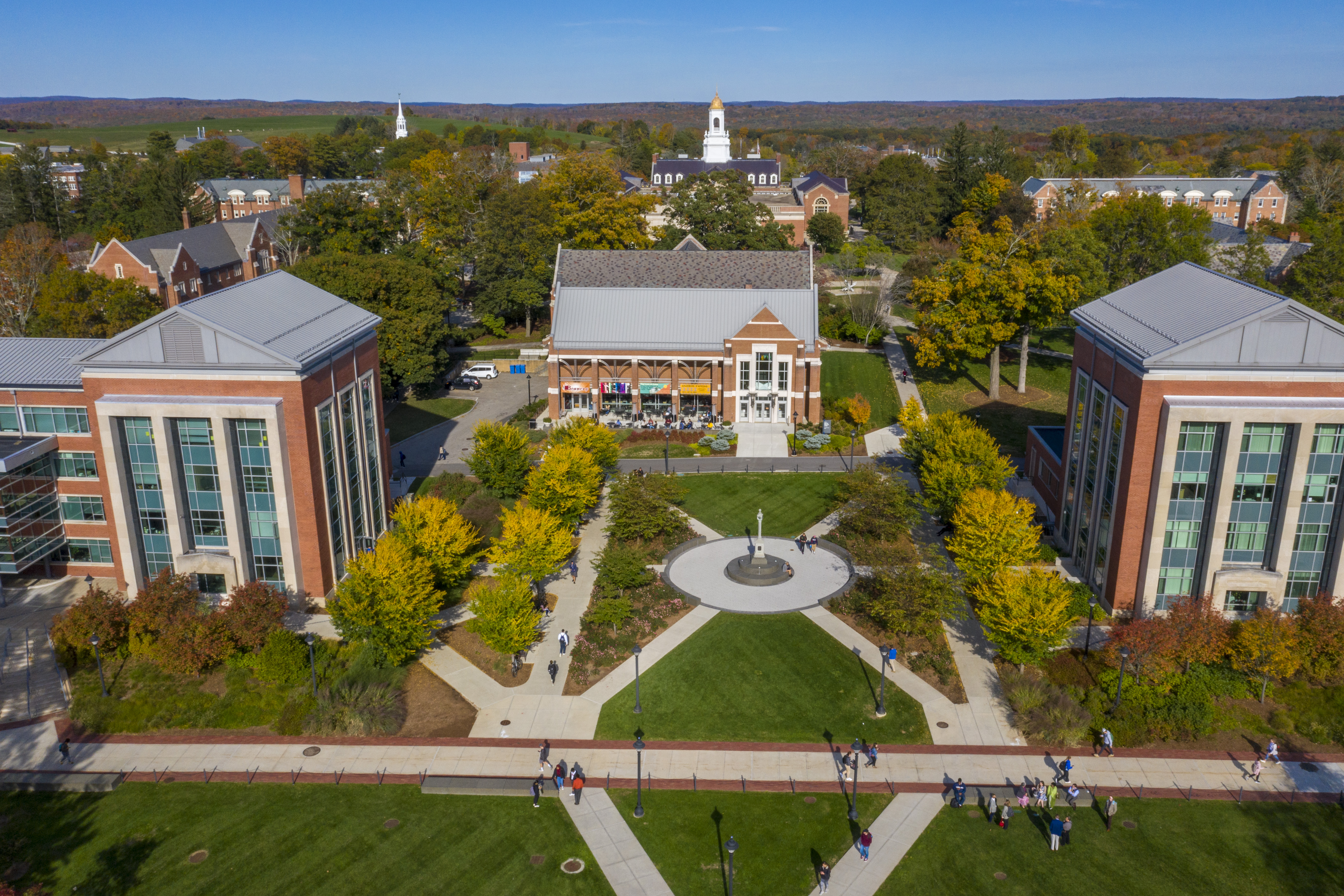
“Like going to Spain for a few days” was how veteran Spanish teacher Joanne Choquette of Plainville High School described a recent three-day professional development institute at UConn for high school teachers.
Ella Kremens, a Spanish teacher at Wolcott High School, said the UConn program, conducted entirely in Spanish, provided an immersion experience. “It was like a post-graduate course towards my master’s at the University; the discussion was at that level.”
Another participant, Ira Becker, who teaches Spanish at Enfield’s Enrico Fermi High School and grew up in a bilingual family, relished the wide range of accents, expressions, and culture at the institute, noting that Spanish teachers in Connecticut often have a variety of native speakers in the classroom.
Choquette, Becker, and Kremens were among a group of high school Spanish teachers from around the state who journeyed to Storrs to take part in a new Spanish Summer Institute, an intensive multi-day program of lectures and interactive seminar discussions.
“We wanted to re-ignite why these educators love this discipline and decided to become Spanish teachers in the first place,” said Ana Maria Diaz-Marcos, associate professor of Spanish literature and cultural studies, who spearheaded the Institute along with Eduardo Urios-Aparisi, associate professor of cognitive linguistics and Spanish cultural studies.
Together they designed the institute “as if we were in Madrid, seeing Spanish movies, talking about Spanish art, design, and fashion,” said Diaz Marcos. They even found a Spanish caterer to prepare dishes from Spain so they could work food into the conversations.
The institute was sponsored by UConn’s Early College Experience (ECE) Program, which works with high schools in Connecticut to help students get an early start on their university careers. Since 1955, UConn has provided access to University coursework through the ECE (previously known as High School Co-op). The program currently offers 50 courses in 23 disciplines at 167 partner schools, to motivated students who want to study university-level material while still in high school.
A part of the Office of Early College Programs, UConn ECE certifies both the coursework, which is developed by UConn faculty, and the instructors, to ensure that the UConn courses taught in high schools are the same as courses taught on campus. Currently, more than 10,000 high school students are participating, taught by 942 certified instructors, who are all designated as adjunct UConn faculty.
In 2011, in collaboration with UConn biology faculty, ECE developed a three-day intensive summer institute program for high school teachers, who typically return to UConn for one-day workshops throughout the year to keep their certification.
“We wanted to create a summer institute for teachers, to get them back in the lab and get their hands dirty, to provide them time to network with their UConn colleagues and get new ideas and tools to take back to their classrooms,” said Brian Boecherer, associate director of the ECE program.
There have been four biology institutes to date, and they have become popular not only with the teachers, but also with faculty, prompting the program to launch Spanish and chemistry institutes this summer.
“The UConn departments see this as a great outreach to their ECE colleagues, as well as a fun way for increasing the capacity of the high school adjuncts,” says Boecherer. “What’s more, as NSF grants have started to require that funded research be connected with the community, this is a successful avenue for building that distribution network.”

For the Spanish Institute’s agenda, Urios-Aparisi and Diaz-Marcos used material from their own research to explore the cultural evolution of Spanish identity. He studies film, art, theater, and humor in the media, and recently published a book on acclaimed Spanish filmmaker Pedro Almodovar. She has published books on fashion and the rise of feminist consciousness in modern Spain. Together, they facilitated discussions on the role that fashion, design, art, and film have played in creating an image of modern Spain.
The curriculum had three levels of activity targeted to students’ fluency and comprehension.
Diaz-Marcos said talking about fashion in high school is a sure way to capture attention. “Of course we do very canonical things like reading a 20th-century novel, but if fashion is the topic, and if I’m 16 or 17 years old, I’m like ‘yeah, I want to know more about that’.”
Veteran Spanish teacher Raul Morermans, said the summer institute was “a fabulous experience.” Now teaching at New Britain’s new Capitol Region Education Council (CREC) Medical Professions and Teacher Preparation Magnet school, the Argentinian-born ECE instructor said, “Fashion is a fantastic idea to bring back to the classroom. If I get a discussion like that with my students,” he joked, “I’ll retire.”



